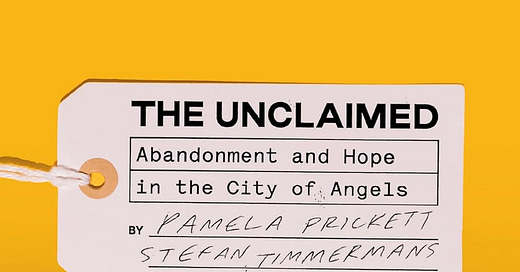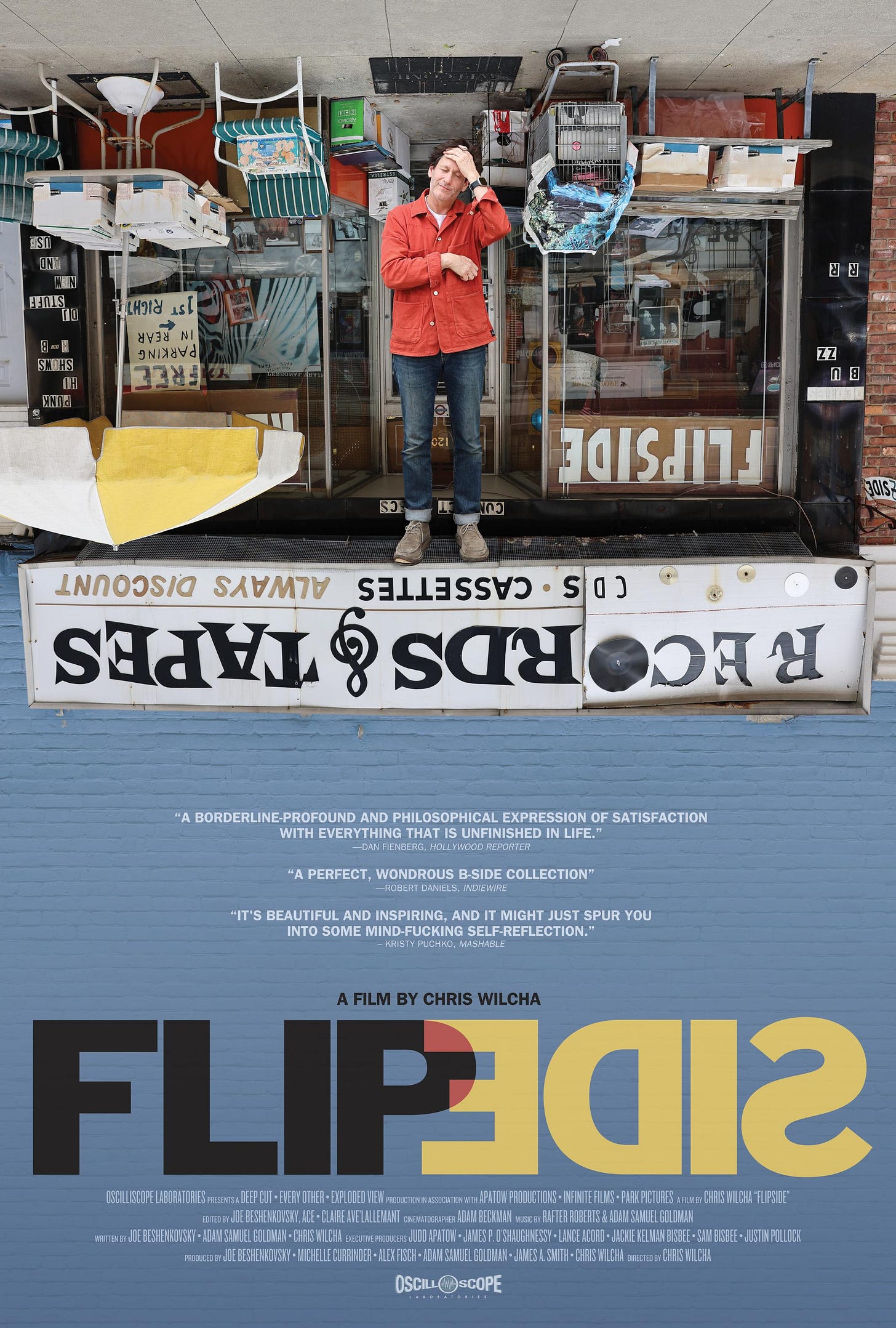C&C 50: Pasture Prime
Trying to figure out if I’m being shown the door, and some related recommendations
The first time it happened, I laughed it off. A few weeks ago, I was sitting at a bar—hey, there’s a surprise—chatting with some visitors from Chicago. One of them asked, “So did you retire out here?” I blame my hair. It started going gray when I was in high school, ushering me into what I insist on calling my silver fox era while I was in my thirties.
Days later, I went in for a dental appointment. The receptionist kicked off the small talk with, “You must be thinking about retirement. Do you have a date picked out?”
Two instances in quick succession made it time to take stock. I wanted to know what prompted these questions in light of the following:
Even with a birthday coming up this week, I am some distance from retirement age. If anything, I am squarely in my prime earning years, a fact that will come as a shock to my accountant. Who is actually Rosemarie’s accountant.
I do not, in any conventional sense, have a “job” from which I can “retire.”
Whatever it is I’m doing, I intend to keep at it to the bitter end out of sheer orneriness.
At a loss, I turned to my most trusted advisor.
Me: Why do people think I’m retired?
Rosemarie: It’s the hair. You also project a sense of being relaxed and successful.
Me: But I’ve never been either of those things.
Ultimately, I chalked it up to retirement being in the air. At the time, Joe Biden was running for re-election, but the drumbeat for him to step aside had reached a crescendo. I was struck by a few essays offering counsel to the 81-year-old POTUS, particularly a New York Times op-ed by former journalist Clark Hoyt, born the same day as Biden in 1942. I also liked Marc Jacobson’s bracingly honest post-debate feature in New York, reframing Biden’s disastrous performance in more humane terms about the diminishment that is a natural part of aging. Jacobson, 76, wrote:
I could have told him there are some things I can no longer do, like think fast, and there are some things I do better than I ever could, like see the way big ideas come together, what they mean.
Jacobson also reeled off a few steps he could take to become “the sort of old person young people want to be if they should live so long … a ‘cool’ old person, an aging bon vivant, like William Powell in his Thin Man roles, cocktail in hand.” It goes without saying that this will be my approach for the twilight years. I’ve already taken the first step: making my peace with young people having no clue who William Powell is. I see this as an advantage. I can pilfer Nick Charles’s lines outright now, the whippersnappers none the wiser.
Biden, of course, made his decision, and despite the upheaval that followed I can still say, perhaps for the last time, that I will be younger than whoever is elected President of the United States. At least for the moment; the way this election cycle has gone, the choice in November could come down to an AI trained exclusively on the work of Ayn Rand versus a hologram of Dwayne Johnson. Even then, I still wouldn’t vote for RFK Jr.
I remember watching MLB Network in 2010 when Joe Torre stepped down as skipper of the Los Angeles Dodgers, ending his long managerial career. Analyst Harold Reynolds insisted Torre would move on to a new challenge, saying “Joe knows” as a former ballplayer that you have to keep active, otherwise mental and physical atrophy begins. I’d seen that scenario play out with my father, who spent decades in a brutal job that took a toll on his body. His understandably sedentary retirement, I believe, contributed to his cognitive decline. (Sure enough, Torre took a position in the baseball commissioner’s office, where he continues to work at age 84.)
Still, one wants to approach the aging process in a clear-eyed fashion. I’ve already written about my affection for Margareta Magnusson’s grimly-titled but cheerful The Gentle Art of Swedish Death Cleaning (2018), which advises you to let go of things so that you can continue to negotiate your life in comfort. The trick is being honest about your capabilities and needs.
These thoughts were recently crystalized when I read The Unclaimed: Abandonment and Hope in the City of Angels (2024), by Pamela Prickett and Stefan Timmermans. This searing non-fiction work, which evolved into what the authors describe as “a quest to better understand what we owe one another in death and in life,” focuses on the people who perish only to have their remains go unclaimed. Up to 114,000 Americans—“roughly how many Americans die annually from diabetes”—fall into this category per year, with nearly 1,500 of them in Los Angeles County. They are consigned to a mass grave, their funeral attended by a scattering of municipal workers and compassionate strangers. The authors introduce us to death scene investigators, to whom “greeting cards are treasure maps … because they point to family and friends—people who might care enough about the decedent to claim the body,” along with crematorium employees as well as volunteers who strive to ensure that the passings of veterans and infants are not forgotten. They also talk openly about how delving into this topic affected them personally. But for the most part, they concentrate on a quartet of disparate Angelenos, piecing together their lives, their deaths, and the aftermaths. It’s a distressing subject that yields a strangely beautiful book.
The four people at the heart of The Unclaimed come from different social strata and face a range of health issues, but they have one thing in common: a profound isolation, typically exacerbated by an unwillingness or an inability to admit that they need help. The book brings home how devastating this is on a gut level; when I finished it, I returned an abundance of phone calls and emails, and sent up a few flares of my own. In a recent New York Times interview, Robert Putnam, author of the landmark Bowling Alone: The Collapse and Revival of American Community (2000), sounded the alarm bell: “Loneliness. It’s bad for your health, but it’s also bad for the health of the people around you.”
All of which is a reason to keep bellying up to bars where I’m a regular, falling into conversation with out-of-towners. I won’t even mind if they ask me if I’m retired. Maybe one of these years, the answer will be yes.
What I’m Watching
Related to the above: Flipside (2024) is one of the best films I’ve seen on living a creative life. It turns out a huge part of that is figuring out what’s worth holding on to. In 1999, Chris Wilcha made a splash with his entertaining documentary The Target Shoots First, about landing a job at the Columbia House record club out of college. He assumed this would lead to a career as a documentarian. Instead, he became a successful director of commercials, the sellout his idealistic but naïve younger self feared he’d be. On one of these commercial shoots, Wilcha stops by the title New Jersey record store that spurred his love of music and promises the owner, the same one who hired him decades earlier, that he will make a movie about the place, a dusty emporium that seems trapped in time.
The problem is Wilcha can’t seem to get started. Life—marriage, kids, other assignments—keeps getting in the way. This maddening state of affairs prompts him to revisit a host of documentary projects he has been unable to complete satisfactorily, involving the likes of Judd Apatow, Ira Glass, David Milch, and jazz photographer Herman Leonard. (As a bonus thrill to tri-state area kids like me, there are also repeated appearances by “Uncle Floyd” Vivino, a Flipside Records mainstay, who shares his own hard-won wisdom about making it work as an artist.) Wilcha beguilingly weaves these so-called “failures” into Flipside’s story, making a persuasive argument that the dead-ends and disappointments give as much shape and meaning to our lives as our perceived triumphs. This one hit hard. I’ve been thinking about it a lot.
What (Else) I’m Reading
Sticking to the theme: Mick Jagger turned 81 last week, and the Rolling Stones are still on tour. My friend (and this newsletter’s patron saint) Ethan Iverson went to see them for the first time, and tells the tale in The Nation. Ethan focuses on a key to the Stones’ rejuvenation: bringing in a younger but still accomplished drummer in Steve Jordan to succeed Charlie Watts.
Want to stave off loneliness? Here’s an idea: chat benches.
What I’m Drinking
We’ve reached that time of year when it’s so hot I can’t decide between a gin and tonic or a Negroni. Soon it will be August, when it’s hot enough for me to say, Screw it, why not both? Alex Smith concocted the Italian G&T while working at San Francisco’s Whitechapel, fusing the two classics together. Smith’s original recipe also calls for a rosemary sprig as garnish, but whenever I make this drink it’s too hot for me to look for one.
Italian G&T
2 oz. gin
½ oz. Campari
½ oz. sweet vermouth
Tonic water
Combine the first three ingredients in a highball glass with ice. Top with tonic water to taste. Garnish with an orange twist (and, fine, a rosemary sprig if one is lying around).






As an artist I feel your best work likely still lies ahead.
Thanks Vince! THE UNCLAIMED sounds like a great read, and being a big film noir fan, I naturally thought of Richard Widmark and Thelma Ritter in PICKUP ON SOUTH STREET. I am retired, but still making plenty of noise with my friends. And yes, people assumed I was retired years before I was finally ready to flip the switch. I blame my LACK of hair...